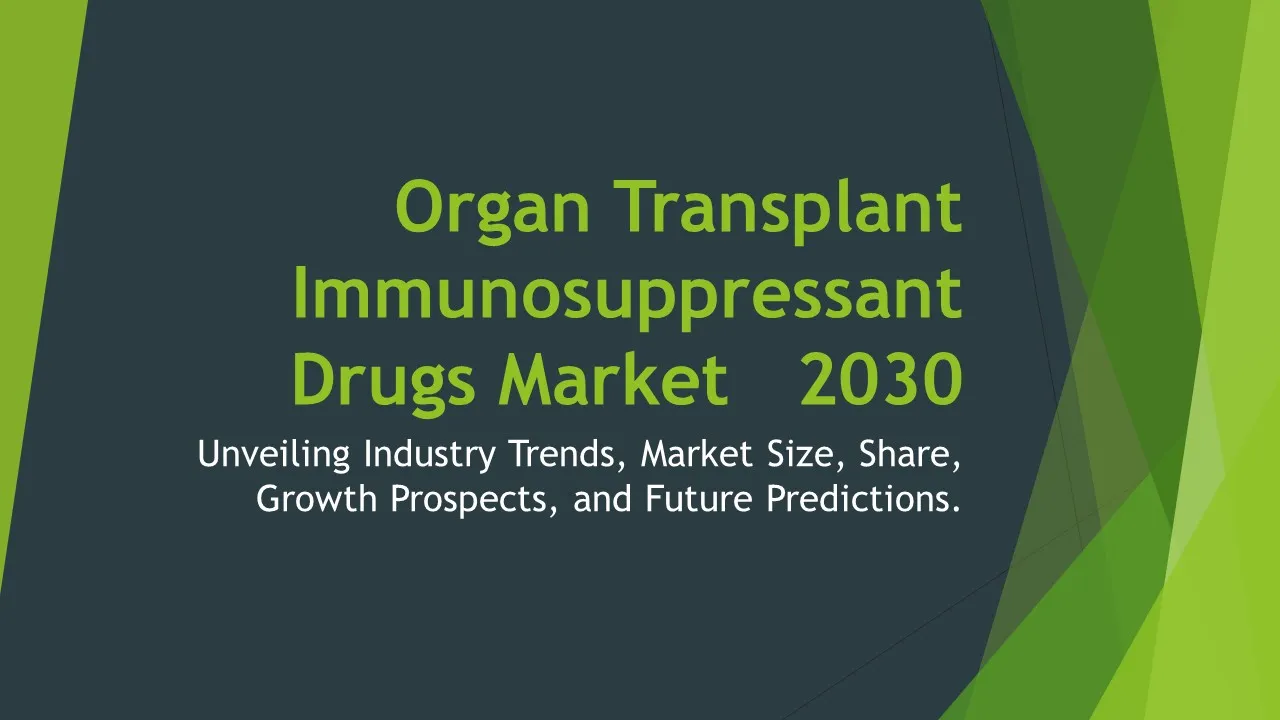NK Cells
NK Cells Market Segments - by Product Type (Natural Killer Cell Therapy, Natural Killer Cell Lines, Natural Killer Cell Culture Media, Natural Killer Cell Activation and Expansion Kits, Natural Killer Cell Isolation and Purification Kits), Application (Cancer Immunotherapy, Infectious Diseases, Autoimmune Diseases, Transplant Rejection, Others), Distribution Channel (Hospitals, Clinics, Research Institutes, Biopharmaceutical Companies, Others), Ingredient Type (IL-2, IL-15, IL-12, IFN-gamma, TNF), and Region (North America, Europe, Asia Pacific, Latin America, Middle East & Africa) - Global Industry Analysis, Growth, Share, Size, Trends, and Forecast 2025-2035
- Report Preview
- Table Of Content
- Segments
- Methodology
NK Cells Market Outlook
The global NK Cells Market is poised for substantial growth, projected to reach approximately USD 5.3 billion by 2035, with a compound annual growth rate (CAGR) of around 20.5% during the forecast period from 2025 to 2035. This rapid growth can be attributed to the increasing prevalence of cancer and infectious diseases, along with a rising demand for effective immunotherapies. Additionally, advancements in cell-based therapies and the growing understanding of the immune system's role in disease treatment are driving further market expansion. The significant investments in research and development for NK cell therapies and the rising number of clinical trials are also pivotal in propelling the market forward. Furthermore, increased awareness regarding the potential applications of NK cell therapies in treating various medical conditions is expected to enhance market growth significantly.
Growth Factor of the Market
The NK Cells market is experiencing a surge due to multiple growth factors that are contributing to its robust expansion. Firstly, the increasing incidence of cancers worldwide has made effective treatment options like NK cell therapy more critical. This therapy harnesses the body's natural immune cells to target malignant cells, which is particularly appealing due to its potential for fewer side effects compared to traditional therapies. Secondly, advancements in biotechnology and the development of novel products such as NK cell activation and expansion kits are making these therapies more accessible and efficient. Thirdly, there is a growing focus on personalized medicine, where treatments are tailored to individual patient needs, further driving the demand for NK cell therapies. Additionally, heightened investment from both public and private sectors in research initiatives aimed at understanding NK cell dynamics is paving the way for innovative treatment solutions. Finally, increasing collaborations among biotechnology firms, research institutions, and healthcare organizations to promote NK cell research is expected to bolster market growth in the coming years.
Key Highlights of the Market
- Projected market growth to USD 5.3 billion by 2035 with a CAGR of 20.5%.
- Significant rise in the prevalence of cancer and infectious diseases driving demand.
- Increased investment in R&D, enhancing innovation in NK cell therapies.
- Growing awareness and acceptance of immunotherapy among healthcare providers.
- Expanding clinical trials and regulatory approvals for NK cell products.
By Product Type
Natural Killer Cell Therapy:
Natural Killer Cell Therapy is at the forefront of therapeutic options in the NK Cells market, focusing on harnessing the innate capabilities of NK cells to combat various cancers and infections. This therapy involves the administration of activated NK cells, which can be sourced from the patient or from healthy donors, to enhance the body's immune response against tumors. The efficacy of NK cell therapy has been supported by numerous clinical trials showcasing its potential in treating hematological malignancies, with ongoing research aimed at expanding its application to solid tumors. As research progresses, the market for NK cell therapy is expected to grow significantly, driven by increasing approvals and successful treatment outcomes, which further validate its potential in clinical practice.
Natural Killer Cell Lines:
Natural Killer Cell Lines are vital for research and development in the NK Cells market, providing a continuous and reproducible source of NK cells for various applications. These cell lines facilitate the study of NK cell biology, interaction with other immune cells, and evaluation of therapeutic efficacy in preclinical models. They are instrumental in drug discovery processes, enabling researchers to test new compounds and formulations in a controlled environment. The demand for these cell lines is expected to continue growing as they become increasingly integrated into drug development pipelines, leading to a more profound understanding of NK cells and their therapeutic applications.
Natural Killer Cell Culture Media:
Natural Killer Cell Culture Media are essential for the growth and maintenance of NK cells in laboratory settings. These specialized media are formulated to provide the necessary nutrients, growth factors, and conditions required to support NK cell growth and viability. As more researchers delve into NK cell studies, the demand for high-quality culture media is expected to rise correspondingly. Innovations in media formulations that enhance NK cell expansion and functionality will likely drive the market further, as these advancements facilitate more effective experimental outcomes and clinical applications.
Natural Killer Cell Activation and Expansion Kits:
Natural Killer Cell Activation and Expansion Kits are designed to simplify the process of enhancing the activity and proliferation of NK cells. These kits typically comprise various components, including cytokines and antibodies, that stimulate NK cell activation and growth. With the growing interest in immunotherapy and personalized medicine, the demand for these kits is expected to surge, as they provide researchers and clinicians with tools to produce potent NK cells for therapeutic use. As more clinical studies validate the efficacy of NK cell therapies, the market for activation and expansion kits will likely expand, reflecting their integral role in advancing NK cell-based treatments.
Natural Killer Cell Isolation and Purification Kits:
Natural Killer Cell Isolation and Purification Kits play a pivotal role in the NK Cells market by enabling the extraction of NK cells from various sources, such as peripheral blood or umbilical cord blood. These kits utilize advanced techniques, such as magnetic-activated cell sorting (MACS) or fluorescence-activated cell sorting (FACS), to achieve high purity and yield of NK cells. The increasing focus on personalized therapies necessitates the need for high-quality isolated NK cells, which in turn propels the demand for these kits. As the understanding of NK cell biology deepens, the refinement and development of isolation techniques are anticipated to enhance the overall market landscape.
By Application
Cancer Immunotherapy:
Cancer Immunotherapy is a prominent application of NK cell therapies, leveraging their natural ability to identify and destroy malignant cells. NK cells possess innate cytotoxicity, making them effective against a variety of tumors without prior sensitization. The use of NK cells in cancer treatment is gaining momentum, supported by numerous clinical trials demonstrating promising results in hematological cancers and certain solid tumors. As the demand for effective cancer treatments continues to rise, the NK cell immunotherapy market is expected to expand, particularly with ongoing research aimed at enhancing NK cell activity and persistence in the tumor microenvironment.
Infectious Diseases:
Naturally, NK cells play a crucial role in the body's defense against infectious diseases by targeting virally infected cells and intracellular pathogens. With the increasing prevalence of infectious diseases and global health challenges, the application of NK cell therapies in this domain is becoming more relevant. Research is ongoing to explore the efficacy of NK cell treatments against various viral infections, including HIV and hepatitis, as well as emerging pathogens. As the healthcare community shifts towards innovative therapeutic strategies to combat infectious diseases, NK cell applications are anticipated to witness significant growth, driven by successful treatment outcomes and advancements in NK cell technology.
Autoimmune Diseases:
The application of NK cell therapies in treating autoimmune diseases is an emerging area of interest within the NK Cells market. NK cells can modulate immune responses, which may help alleviate the symptoms of conditions like rheumatoid arthritis and lupus. Their ability to distinguish between healthy and diseased cells presents a unique opportunity to develop therapies that can re-balance the immune system in autoimmune disorders. As research continues in this field, there is potential for NK cell therapies to offer innovative solutions for managing autoimmune conditions effectively, contributing to the overall growth of the NK Cells market.
Transplant Rejection:
NK cells have gained attention in the context of transplant rejection due to their role in recognizing and eliminating foreign cells. In organ transplantation, NK cell activity can lead to graft rejection; however, ongoing research is exploring the possibility of manipulating NK cell responses to improve transplant outcomes. By utilizing NK cell therapies, there may be opportunities to enhance graft acceptance and reduce dependence on long-term immunosuppressive treatment. Such advancements could revolutionize transplant medicine, consequently driving market growth as clinicians seek innovative methods to promote transplant success.
Others:
The "Others" category encompasses a variety of additional applications for NK cell therapies, reflecting the versatility of NK cells in therapeutic strategies. This includes potential uses in addressing inflammatory conditions, metabolic syndromes, and even age-related diseases. As researchers continue to explore the multifaceted roles of NK cells in different health conditions, the potential applications are expected to broaden, leading to increased adoption of NK cell therapies across various medical fields.
By Distribution Channel
Hospitals:
Hospitals represent a significant distribution channel for NK cell therapies, being key providers of advanced cancer treatments and immunotherapies. With specialized oncology departments, hospitals are equipped to administer complex NK cell therapies to patients requiring innovative treatment options. The growing recognition of the effectiveness of NK cell therapies among healthcare professionals has led to their increased incorporation into treatment regimens in hospitals, ultimately driving market demand in this segment. As the field continues to advance, hospitals are expected to remain at the forefront of NK cell therapy administration, facilitating access to these life-saving treatments.
Clinics:
Clinics specializing in immunotherapy or oncology serve as crucial distribution channels for NK cell therapies, providing personalized care and treatment options for patients. These facilities often have the capability to conduct outpatient procedures, making it convenient for patients to receive NK cell therapies. The rise of targeted immunotherapy has positioned clinics as essential players in the NK Cells market, especially as awareness of these therapies grows among patients seeking alternatives to traditional cancer treatments. As patient demand for accessible and effective care increases, clinics are anticipated to play a significant role in the dissemination of NK cell therapies.
Research Institutes:
Research institutes are pivotal in advancing NK cell therapies, acting as hubs for innovation and development in this field. These institutions conduct extensive research that informs clinical applications, leading to the development of new therapeutic approaches. The collaboration between research institutes and biotechnology companies fosters an environment of discovery, enabling the translation of laboratory findings into clinical practice. As more breakthroughs in NK cell research occur, the partnership between research institutes and market players is expected to drive growth in the NK Cells market, further validating the therapeutic potential of NK cell therapies.
Biopharmaceutical Companies:
Biopharmaceutical companies are significant contributors to the NK Cells market, focusing on the development and commercialization of NK cell-based therapies. These companies leverage scientific advancements to create innovative products that target various health conditions, particularly cancer. By investing heavily in research and development, biopharmaceutical firms are at the forefront of bringing NK cell therapies to market, conducting clinical trials that validate their efficacy and safety. As the landscape of immunotherapy evolves, the role of biopharmaceutical companies is expected to expand, solidifying their position as key players in the NK Cells market.
Others:
Other distribution channels for NK cell therapies include academic institutions, charitable organizations, and online healthcare platforms, which are becoming increasingly relevant in the healthcare landscape. Academic institutions often conduct clinical trials and studies that contribute to the body of knowledge surrounding NK cell therapies, while charitable organizations may facilitate access to novel treatments for underserved populations. Online healthcare platforms provide patients with information and access to clinical trials and therapies, offering a new approach to treatment distribution. As the NK Cells market continues to develop, these alternative channels are likely to contribute to its growth by enhancing accessibility and awareness.
By Ingredient Type
IL-2:
Interleukin-2 (IL-2) is a crucial cytokine used in NK cell therapies due to its ability to promote NK cell proliferation and activation. IL-2 is often included in therapeutic regimens to enhance the cytotoxic capabilities of NK cells, making them more effective against tumors and infected cells. The demand for IL-2 in the NK Cells market is driven by ongoing research and clinical applications that validate its efficacy in various therapeutic contexts. As researchers explore optimal dosing and combination strategies involving IL-2, its role in NK cell therapies is expected to expand, further contributing to market growth.
IL-15:
Interleukin-15 (IL-15) has emerged as a vital ingredient in NK cell therapies, known for its ability to support the survival and proliferation of NK cells. Unlike IL-2, which primarily stimulates T cells, IL-15 preferentially enhances NK cell activity, making it an attractive option for therapeutic development. The inclusion of IL-15 in therapeutic protocols is associated with improved NK cell persistence and functionality, which is critical for the success of immunotherapies. As clinical studies continue to demonstrate the benefits of IL-15 in NK cell applications, its demand is expected to rise within the NK Cells market.
IL-12:
Interleukin-12 (IL-12) is another important cytokine utilized in NK cell therapies due to its potent ability to enhance NK cell activation and promote anti-tumor responses. By driving the differentiation of NK cells into a more activated phenotype, IL-12 contributes significantly to the cytotoxic potential of NK cells against cancer cells. The growing recognition of IL-12's role in immunotherapy is likely to drive its adoption in NK cell treatments, as ongoing research elucidates its synergistic effects when combined with other cytokines or therapies, thereby enhancing treatment outcomes.
IFN-gamma:
Interferon-gamma (IFN-gamma) is a cytokine that plays a crucial role in the immune response, particularly in enhancing the functionality of NK cells. Its incorporation into NK cell therapies effectively boosts their cytotoxic activity and promotes the recognition of tumor cells. The demand for IFN-gamma is driven by its demonstrated efficacy in various clinical settings, particularly in cancer treatments targeting resistant tumors. As researchers continue to investigate the optimal use of IFN-gamma in NK cell therapies, its relevance in the NK Cells market is expected to grow, fueled by successful clinical applications.
TNF:
Tumor Necrosis Factor (TNF) is an essential cytokine that supports NK cell activation and proliferation, contributing to their overall effectiveness in immunotherapy. TNF is recognized for its ability to induce apoptosis in tumor cells, further enhancing the therapeutic potential of NK cells. The synergy between TNF and NK cell therapies has been a focus of research, leading to innovative treatment strategies that leverage this interaction. As the NK Cells market continues to expand, the demand for TNF in combination with NK cell therapies is anticipated to increase, driven by ongoing clinical research and therapeutic advancements.
By Region
The North American region is expected to dominate the NK Cells market, accounting for approximately 45% of the total market share by 2035. The robust healthcare infrastructure, coupled with significant investments in research and development for immunotherapies, positions North America as a leader in the NK Cells market. The presence of key biopharmaceutical companies and research institutes further enhances the region's capacity for innovative treatments, making it a focal point for NK cell therapy advancements. Additionally, favorable regulatory environments and increasing patient acceptance of immunotherapy contribute to the strong growth forecast for this region, with a projected CAGR of around 20.8% during the forecast period.
In Europe, the NK Cells market is anticipated to grow steadily, capturing around 30% of the global market share by 2035. The region is characterized by its strong emphasis on research and clinical trials related to cell-based therapies, particularly in countries such as Germany, the UK, and France. European healthcare systems are increasingly integrating advanced immunotherapeutic options, including NK cell therapies, into treatment protocols. Furthermore, collaborations between academic institutions and biotechnology firms are fostering innovation and enabling the rapid advancement of NK cell research. As awareness of the benefits of NK cell therapies increases, Europe is expected to experience a CAGR of approximately 19.7% during the forecast period, reflecting its growing significance in the global NK Cells market.
Opportunities
The NK Cells market is ripe with opportunities, particularly as advancements in cellular therapies continue to evolve. One of the most significant opportunities lies in the personalization of NK cell therapies, allowing treatments to be tailored to individual patient profiles. This personalization can enhance therapeutic efficacy and patient outcomes, appealing to a broader patient base seeking effective treatment alternatives. Additionally, the rapid growth of the biotechnology sector presents opportunities for collaborations between research institutions and biopharmaceutical companies, fostering innovation and accelerating the development of novel NK cell therapies. As the global healthcare community increasingly acknowledges the potential of NK cell therapies, there will be ample opportunities for market expansion and diversification into new applications, such as autoimmune diseases and infectious pathogens.
Furthermore, the rising prevalence of cancers and chronic diseases across the globe presents a continuous opportunity for growth in the NK Cells market. As healthcare systems adapt to the increasing demand for innovative therapies, the integration of NK cell therapies into standard treatment protocols is expected to gain traction. The emergence of new technologies, such as genetic engineering and CRISPR, holds promise for enhancing NK cell functionality and specificity, paving the way for groundbreaking therapeutic options. As more clinical trials validate the efficacy of NK cell therapies, the potential for commercial success will undoubtedly attract investments and drive further advancements in NK cell research and development.
Threats
Despite the promising outlook for the NK Cells market, several threats could hinder its growth trajectory. One significant threat is the regulatory landscape surrounding cell-based therapies, which can be complex and time-consuming to navigate. Stringent regulatory requirements for clinical trials and product approvals may delay the introduction of innovative NK cell therapies into the market, limiting their accessibility to patients. Additionally, competition from alternative therapies, such as CAR-T cell therapies and monoclonal antibodies, poses a threat to the NK Cells market, as these options may offer similar benefits with well-established treatment protocols. The evolving nature of the immunotherapy landscape means that NK cell therapies must continually prove their efficacy and safety to remain competitive.
Another potential threat arises from the high costs associated with developing and manufacturing NK cell therapies. The intricate processes involved in cell extraction, modification, and expansion can lead to increased production costs, making these therapies less accessible to patients in need. Moreover, the risk of treatment-related adverse effects, including cytokine release syndrome or immune system dysregulation, could deter healthcare professionals from adopting NK cell therapies. As patient safety remains a top priority, any negative outcomes could impact the reputation of NK cell therapies and hinder market growth. Addressing these threats will require ongoing research, investment, and collaboration across the industry to ensure the sustained success of the NK Cells market.
Competitor Outlook
- Novartis AG
- Gilead Sciences, Inc.
- Bristol-Myers Squibb Company
- Celgene Corporation
- Takeda Pharmaceutical Company Limited
- Amgen Inc.
- Astellas Pharma Inc.
- Roche Holding AG
- Merck & Co., Inc.
- Sanofi S.A.
- CureVac AG
- Fate Therapeutics, Inc.
- Natural Killer Therapeutics, Inc.
- OncoImmune, Inc.
- Pluristem Therapeutics Inc.
The competitive landscape of the NK Cells market is robust and characterized by the presence of several key players actively engaged in developing and commercializing NK cell therapies. These companies range from large pharmaceutical giants to specialized biotech firms, all aiming to capitalize on the growing demand for innovative cancer and immunotherapy solutions. The market dynamics are shaped by collaborations and partnerships among companies, research institutions, and healthcare organizations, fostering a collective effort to advance NK cell research and bring therapies to market. As competition intensifies, companies are focusing on differentiating their products through enhanced efficacy, safety profiles, and personalized treatment approaches.
Among the notable players, Novartis AG has made significant strides in the NK Cells market with its commitment to advancing cell therapy. The company leverages its extensive research pipeline to develop novel NK cell therapies while ensuring rigorous clinical testing to validate their effectiveness. Gilead Sciences, Inc. is another key player, focusing on innovative approaches to harness NK cell technology, particularly in the context of hematological malignancies. Bristol-Myers Squibb Company is also heavily invested in NK cell research, exploring combination therapies that enhance the efficacy of existing treatments. Their strategic acquisitions and collaborations with biotechnology firms further strengthen their position within the NK Cells market.
Emerging players like Fate Therapeutics, Inc. and Natural Killer Therapeutics, Inc. are carving their niche by focusing on cutting-edge technologies that optimize NK cell functionality. Fate Therapeutics specializes in engineered cell therapies, aiming to enhance the effectiveness of NK cells in targeting tumors. Their innovative approach has garnered significant attention within the industry. OncoImmune, Inc. is another player worth noting, as they are actively researching ways to improve NK cell therapies for various indications, including cancer and infectious diseases. As the NK Cells market evolves, the competitive landscape will continue to shift, driven by innovation, collaboration, and the ongoing pursuit of effective treatments for patients in need.
1 Appendix
- 1.1 List of Tables
- 1.2 List of Figures
2 Introduction
- 2.1 Market Definition
- 2.2 Scope of the Report
- 2.3 Study Assumptions
- 2.4 Base Currency & Forecast Periods
3 Market Dynamics
- 3.1 Market Growth Factors
- 3.2 Economic & Global Events
- 3.3 Innovation Trends
- 3.4 Supply Chain Analysis
4 Consumer Behavior
- 4.1 Market Trends
- 4.2 Pricing Analysis
- 4.3 Buyer Insights
5 Key Player Profiles
- 5.1 Amgen Inc.
- 5.1.1 Business Overview
- 5.1.2 Products & Services
- 5.1.3 Financials
- 5.1.4 Recent Developments
- 5.1.5 SWOT Analysis
- 5.2 CureVac AG
- 5.2.1 Business Overview
- 5.2.2 Products & Services
- 5.2.3 Financials
- 5.2.4 Recent Developments
- 5.2.5 SWOT Analysis
- 5.3 Novartis AG
- 5.3.1 Business Overview
- 5.3.2 Products & Services
- 5.3.3 Financials
- 5.3.4 Recent Developments
- 5.3.5 SWOT Analysis
- 5.4 Sanofi S.A.
- 5.4.1 Business Overview
- 5.4.2 Products & Services
- 5.4.3 Financials
- 5.4.4 Recent Developments
- 5.4.5 SWOT Analysis
- 5.5 OncoImmune, Inc.
- 5.5.1 Business Overview
- 5.5.2 Products & Services
- 5.5.3 Financials
- 5.5.4 Recent Developments
- 5.5.5 SWOT Analysis
- 5.6 Roche Holding AG
- 5.6.1 Business Overview
- 5.6.2 Products & Services
- 5.6.3 Financials
- 5.6.4 Recent Developments
- 5.6.5 SWOT Analysis
- 5.7 Merck & Co., Inc.
- 5.7.1 Business Overview
- 5.7.2 Products & Services
- 5.7.3 Financials
- 5.7.4 Recent Developments
- 5.7.5 SWOT Analysis
- 5.8 Celgene Corporation
- 5.8.1 Business Overview
- 5.8.2 Products & Services
- 5.8.3 Financials
- 5.8.4 Recent Developments
- 5.8.5 SWOT Analysis
- 5.9 Astellas Pharma Inc.
- 5.9.1 Business Overview
- 5.9.2 Products & Services
- 5.9.3 Financials
- 5.9.4 Recent Developments
- 5.9.5 SWOT Analysis
- 5.10 Gilead Sciences, Inc.
- 5.10.1 Business Overview
- 5.10.2 Products & Services
- 5.10.3 Financials
- 5.10.4 Recent Developments
- 5.10.5 SWOT Analysis
- 5.11 Fate Therapeutics, Inc.
- 5.11.1 Business Overview
- 5.11.2 Products & Services
- 5.11.3 Financials
- 5.11.4 Recent Developments
- 5.11.5 SWOT Analysis
- 5.12 Pluristem Therapeutics Inc.
- 5.12.1 Business Overview
- 5.12.2 Products & Services
- 5.12.3 Financials
- 5.12.4 Recent Developments
- 5.12.5 SWOT Analysis
- 5.13 Bristol-Myers Squibb Company
- 5.13.1 Business Overview
- 5.13.2 Products & Services
- 5.13.3 Financials
- 5.13.4 Recent Developments
- 5.13.5 SWOT Analysis
- 5.14 Natural Killer Therapeutics, Inc.
- 5.14.1 Business Overview
- 5.14.2 Products & Services
- 5.14.3 Financials
- 5.14.4 Recent Developments
- 5.14.5 SWOT Analysis
- 5.15 Takeda Pharmaceutical Company Limited
- 5.15.1 Business Overview
- 5.15.2 Products & Services
- 5.15.3 Financials
- 5.15.4 Recent Developments
- 5.15.5 SWOT Analysis
- 5.1 Amgen Inc.
6 Market Segmentation
- 6.1 NK Cells Market, By Application
- 6.1.1 Cancer Immunotherapy
- 6.1.2 Infectious Diseases
- 6.1.3 Autoimmune Diseases
- 6.1.4 Transplant Rejection
- 6.1.5 Others
- 6.2 NK Cells Market, By Product Type
- 6.2.1 Natural Killer Cell Therapy
- 6.2.2 Natural Killer Cell Lines
- 6.2.3 Natural Killer Cell Culture Media
- 6.2.4 Natural Killer Cell Activation and Expansion Kits
- 6.2.5 Natural Killer Cell Isolation and Purification Kits
- 6.3 NK Cells Market, By Ingredient Type
- 6.3.1 IL-2
- 6.3.2 IL-15
- 6.3.3 IL-12
- 6.3.4 IFN-gamma
- 6.3.5 TNF
- 6.4 NK Cells Market, By Distribution Channel
- 6.4.1 Hospitals
- 6.4.2 Clinics
- 6.4.3 Research Institutes
- 6.4.4 Biopharmaceutical Companies
- 6.4.5 Others
- 6.1 NK Cells Market, By Application
7 Competitive Analysis
- 7.1 Key Player Comparison
- 7.2 Market Share Analysis
- 7.3 Investment Trends
- 7.4 SWOT Analysis
8 Research Methodology
- 8.1 Analysis Design
- 8.2 Research Phases
- 8.3 Study Timeline
9 Future Market Outlook
- 9.1 Growth Forecast
- 9.2 Market Evolution
10 Geographical Overview
- 10.1 Europe - Market Analysis
- 10.1.1 By Country
- 10.1.1.1 UK
- 10.1.1.2 France
- 10.1.1.3 Germany
- 10.1.1.4 Spain
- 10.1.1.5 Italy
- 10.1.1 By Country
- 10.2 NK Cells Market by Region
- 10.3 Asia Pacific - Market Analysis
- 10.3.1 By Country
- 10.3.1.1 India
- 10.3.1.2 China
- 10.3.1.3 Japan
- 10.3.1.4 South Korea
- 10.3.1 By Country
- 10.4 Latin America - Market Analysis
- 10.4.1 By Country
- 10.4.1.1 Brazil
- 10.4.1.2 Argentina
- 10.4.1.3 Mexico
- 10.4.1 By Country
- 10.5 North America - Market Analysis
- 10.5.1 By Country
- 10.5.1.1 USA
- 10.5.1.2 Canada
- 10.5.1 By Country
- 10.6 Middle East & Africa - Market Analysis
- 10.6.1 By Country
- 10.6.1.1 Middle East
- 10.6.1.2 Africa
- 10.6.1 By Country
- 10.1 Europe - Market Analysis
11 Global Economic Factors
- 11.1 Inflation Impact
- 11.2 Trade Policies
12 Technology & Innovation
- 12.1 Emerging Technologies
- 12.2 AI & Digital Trends
- 12.3 Patent Research
13 Investment & Market Growth
- 13.1 Funding Trends
- 13.2 Future Market Projections
14 Market Overview & Key Insights
- 14.1 Executive Summary
- 14.2 Key Trends
- 14.3 Market Challenges
- 14.4 Regulatory Landscape
Segments Analyzed in the Report
The global NK Cells market is categorized based on
By Product Type
- Natural Killer Cell Therapy
- Natural Killer Cell Lines
- Natural Killer Cell Culture Media
- Natural Killer Cell Activation and Expansion Kits
- Natural Killer Cell Isolation and Purification Kits
By Application
- Cancer Immunotherapy
- Infectious Diseases
- Autoimmune Diseases
- Transplant Rejection
- Others
By Distribution Channel
- Hospitals
- Clinics
- Research Institutes
- Biopharmaceutical Companies
- Others
By Ingredient Type
- IL-2
- IL-15
- IL-12
- IFN-gamma
- TNF
By Region
- North America
- Europe
- Asia Pacific
- Latin America
- Middle East & Africa
Key Players
- Novartis AG
- Gilead Sciences, Inc.
- Bristol-Myers Squibb Company
- Celgene Corporation
- Takeda Pharmaceutical Company Limited
- Amgen Inc.
- Astellas Pharma Inc.
- Roche Holding AG
- Merck & Co., Inc.
- Sanofi S.A.
- CureVac AG
- Fate Therapeutics, Inc.
- Natural Killer Therapeutics, Inc.
- OncoImmune, Inc.
- Pluristem Therapeutics Inc.
- Publish Date : Jan 21 ,2025
- Report ID : PH-67582
- No. Of Pages : 100
- Format : |
- Ratings : 4.5 (110 Reviews)









